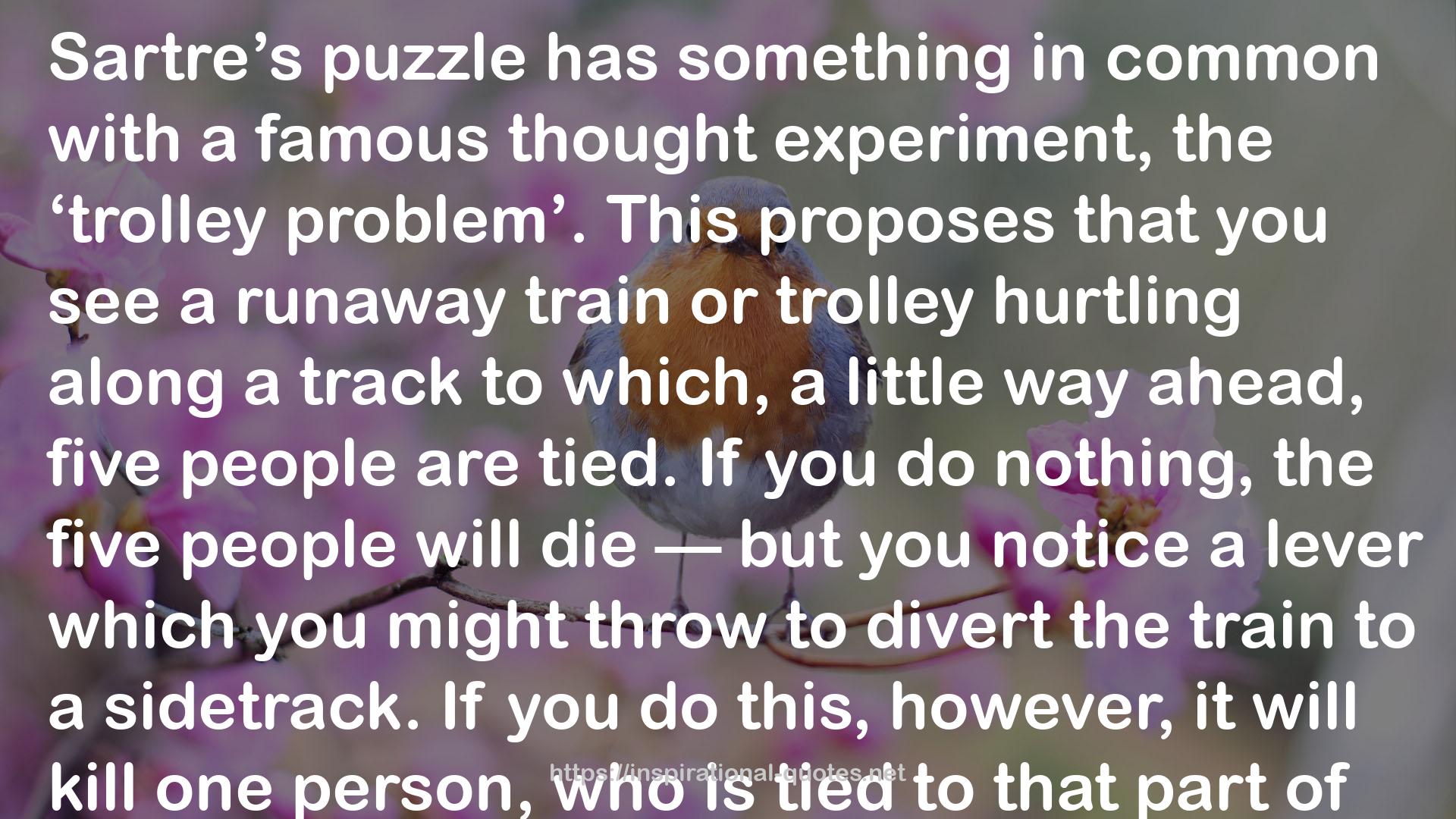" Sartre’s puzzle has something in common with a famous thought experiment, the ‘trolley problem’. This proposes that you see a runaway train or trolley hurtling along a track to which, a little way ahead, five people are tied. If you do nothing, the five people will die — but you notice a lever which you might throw to divert the train to a sidetrack. If you do this, however, it will kill one person, who is tied to that part of the track and who would be safe if not for your action. So do you cause the death of this one person, or do you do nothing and allow five to die? (In a variant, the ‘fat man’ problem, you can only derail the train by throwing a hefty individual off a nearby bridge onto the track. This time you must physically lay hands on the person you are going to kill, which makes it a more visceral and difficult dilemma.) Sartre’s student’s decision could be seen as a ‘trolley problem’ type of decision, but made even more complicated by the fact that he could not be sure either that his going to England would actually help anyone, nor that leaving his mother would seriously harm her. "
― Sarah Bakewell , At the Existentialist Café: Freedom, Being, and Apricot Cocktails
